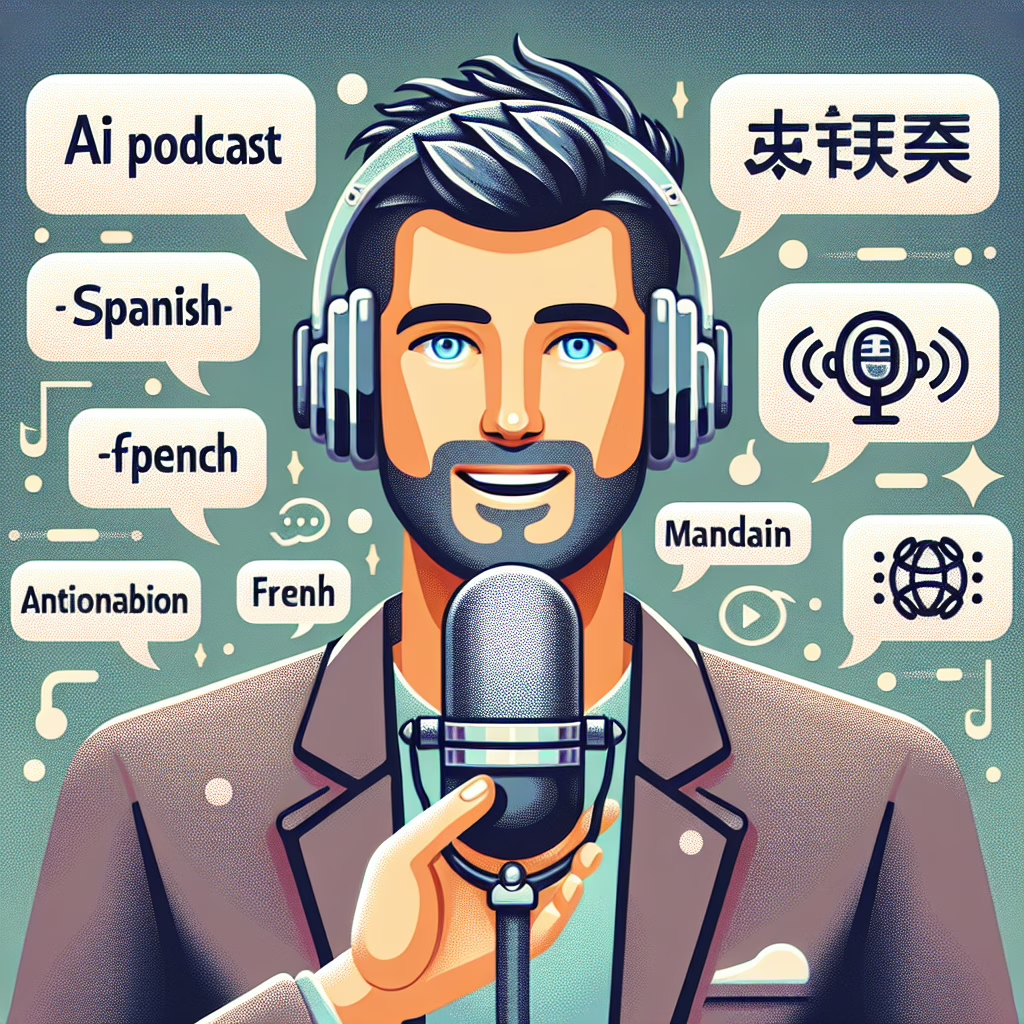Have you ever wished your favorite AI podcast host could speak in multiple languages? Well, hold onto your headphones because Google is making that dream a reality! With its innovative technology, Google is transforming AI podcast hosts into polyglots, allowing them to engage with audiences around the world. This exciting development not only broadens accessibility but also adds a sprinkle of global flair to the podcasting experience.
Polyglots and Podcasts: A Match Made in Digital Heaven
Imagine tuning into a podcast where your beloved host smoothly switches from English to Spanish, then casually drops some French phrases. It’s like having your cake and eating it too—except this cake is made of knowledge served in multiple languages! Google’s new approach to podcasting leverages artificial intelligence to help hosts converse in various tongues, making it easier for non-English speakers to join the fun.
This initiative is part of Google’s broader goal to enhance accessibility and inclusivity in digital content. Now, listeners from different backgrounds can dive into the world of AI without language barriers. The idea here is simple: by enabling podcast hosts to speak multiple languages, Google is ensuring that information flows freely across borders. Talk about a global community!
How It Works: The Magic Behind the Scenes
So, how does Google transform these podcast hosts into multilingual wizards? It all starts with advanced machine learning algorithms and natural language processing techniques. These technologies allow AI to understand and generate speech in various languages, effectively giving hosts a linguistic makeover.
As your favorite host records a new episode, the AI analyzes the content and converts it into different languages. This means they can maintain their unique style and personality while reaching a wider audience. Picture your host cracking jokes in Italian or discussing tech trends in Mandarin—how delightful!
The Benefits of Multilingual Podcasts
Now, you might be wondering why this matters. Well, let’s break it down:
- Wider Audience Reach: By speaking multiple languages, podcasts can attract listeners from various cultural backgrounds. It’s like opening the door to an international party!
- Enhanced Engagement: Multilingual content keeps listeners engaged. They feel included when they hear their native tongue being spoken.
- Cultural Exchange: Language isn’t just about words; it’s about culture. Engaging with diverse languages enriches the conversation and fosters understanding among listeners.
In this ever-globalizing world, connecting with different cultures through language can elevate the podcast experience from ordinary to extraordinary. The rise of podcasts in various languages signifies a shift towards embracing diversity in auditory learning.
The Future Looks Bright for Polyglot Podcasts
As we embrace this technology, it’s clear that the future of podcasts is going multilingual. Imagine episodes filled with rich discussions about artificial intelligence where cultural nuances are celebrated rather than overlooked. With Google’s commitment to enhancing accessibility through language diversity, we can expect more podcasts to adopt this trend.
Moreover, as AI continues to evolve, we might see even more innovative features being introduced. Perhaps one day, our hosts will not only switch languages but also adjust their accents or tones based on listener preferences. This could personalize the experience even further. The possibilities are endless!
Join the Conversation!
This is just the beginning of what promises to be an exciting journey in the realm of podcasts and artificial intelligence. We invite you to share your thoughts! How do you feel about multilingual podcasts? Would you tune in? Let us know in the comments below!
A huge thanks to TechRadar for inspiring this discussion on how Google is revolutionizing podcasting with polyglot capabilities! With the increasing popularity of podcasts, this advancement might just be what the industry needs to reach new heights.

